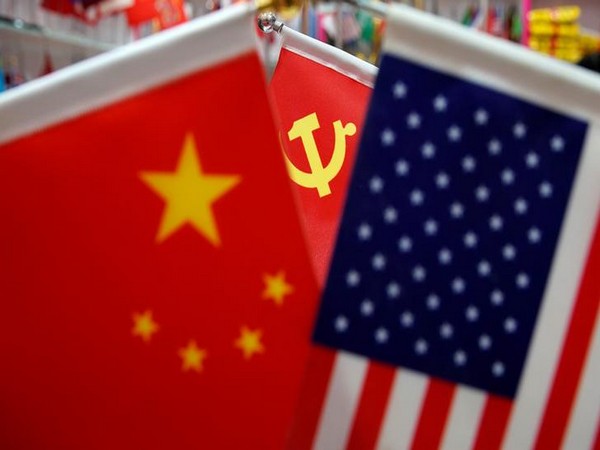Trump administration signals hardening of stance towards Beijing
As the relations between the US and China continue to worsen, the Trump Administration is signalling a hardening of stance towards Beijing.

- Country:
- United States
As the relations between the US and China continue to worsen, the Trump Administration is signaling a hardening of stance towards Beijing. A slew of recent statements from Washington has made it clear that relations between the US and China have hit a new low.
On Tuesday, US Defence Secretary Mark Esper vowed to deter China's coercive behavior in the South China Sea. The US is equipping and positioning its forces across Asia for a possible confrontation with China, Defense Secretary Mark Esper said on Tuesday in remarks outlining the military component of the Trump administration's hardening stance toward Beijing, reported The Wall Street Journal.
The Pentagon chief, while addressing the special presentation for International Institute for Strategic Studies, said that Washington wants to make sure a free and open Pacific because 80 percent of the world's trade flows through the region. "We want to deter against coercive behavior by the Chinese in the South China Sea, now we know it's been going on for years, China is bullying others, particularly smaller countries, it seems your arm gets twisted harder the smaller the country you are, so we want to continue to deter against coercive behavior," Esper said.
"Eighty percent of the world's trade flows through the Indo-Pacific and particularly the South China Sea, so we want to make sure that we maintain a free and open Pacific because otherwise that trade, commerce gets cut off and gets impacted. It is very important we maintain freedom of navigation," Esper noted. On Tuesday itself, US Secretary of State, Mike Pompeo once again blasted at Beijing and urged nations to push back against the Asian giant, disgruntled on the fact that rather than helping the world during this COVID-19 crisis, the Chinese Communist Party (CCP) is bullying its neighbors and militarise features in the South China Sea.
Following his talks with British foreign secretary Dominic Raab, Pompeo used the press to accuse China of engaging in "a cover-up and co-opting" the World Health Organisation by allegedly suppressing early details of the "preventable" coronavirus pandemic that has killed more than 610,000 people globally. "The CCP's exploitation of this disaster to further its own interests has been disgraceful. Rather than helping the world, General Secretary Xi has shown the world the party's true face. We talked about how we have seen Hong Kong's freedoms crushed. We have watched the CCP bully its neighbors, militarise features in the South China Sea, and instigate a deadly confrontation with India," the American top diplomat said at a press briefing.
"We think that the entire world needs to work together to ensure that every country, including China, behaves in the international system in ways that are appropriate and consistent with the international order. You cannot go make claims for maritime regions that you have no lawful claim to. You cannot threaten countries and bully them in the Himalayas. You cannot engage in cover-ups and co-opt international institutions like the World Health Organisation," he added. The remarks come close on the heels of dual exercises in the South China Sea conducted by the USS Ronald and USS Nimitz carrier strikes groups. The presence of the US in the South China Sea has irked China, which claims 3.3 million square miles of the 3.5 million areas as its sovereign territory.
The region is currently disputed between seven countries; Vietnam, Brunei, China, Taiwan, Indonesia, the Philippines, and Malaysia. On Wednesday, it was reported that the US has asked China to close its Consulate General in Houston in 72 hours.
The US and China have sparred over several issues in recent times including the imposition of National Security Law in Hong Kong, human rights violations in Xinjiang, and Beijing's territorial aggression in the South China Sea.
(This story has not been edited by Devdiscourse staff and is auto-generated from a syndicated feed.)
- READ MORE ON:
- China
- Mark Esper
- Beijing
- South China Sea
- Trump
- Chinese Communist Party
- Trump Administration
- Mike Pompeo
- Washington
- Asia
- Dominic Raab
- IndoPacific
- Wall Street Journal
- World Health Organisation
- International Institute for Strategic Studies
- Hong Kong
- British
- Himalayas
- Indonesia
- Philippines
ALSO READ
US navy flies aircraft through the Taiwan Strait a day after US-China defence chiefs hold rare talks
US navy flies aircraft through the Taiwan Strait a day after US-China defence chiefs hold rare talks
US Navy patrol plane flies through Taiwan Strait
US Navy plane flies through Taiwan Strait after China, US defence chiefs speak
China sends fighter jets to shadow US Navy plane over Taiwan Strait










